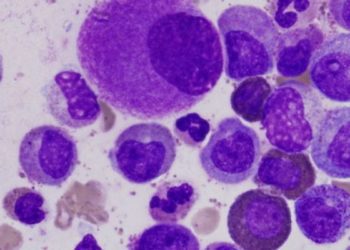Comprehensive cardiovascular disease screening does not reduce incidence of death in men aged 65 to 74
1. Men aged between 65 and 74 who were invited to undergo comprehensive cardiovascular screening for five years did not have a significant reduction in the risk of death from any cause.
2. There were no meaningful reductions in the incidence of adverse cardiovascular outcomes between the men who underwent screening and those who did not.
Evidence Rating Level: 1 (Excellent)
Study Rundown: It is estimated that 80% of cardiac events and strokes are preventable and that 25% to 75% may be specifically prevented through early detection and intervention. A recent screening trial demonstrated that an invitation to undergo combined screening for abdominal aortic aneurysm, peripheral artery disease, and hypertension results in a 7% relative reduction in the overall risk of death among men aged 65 to 74. However, there is a gap in knowledge as to understanding the clinical benefits of population-based screening. Overall, this study found that inviting men to undergo comprehensive, advanced cardiovascular screening did not significantly reduce the incidence of death from any cause. This study was limited by only including men between 65 and 74 years and who were living in Denmark, and thus is not generalizable to other populations, such as women, other age groups, non-White persons, or persons living in countries with different health care systems. Nevertheless, these findings are significant, as they demonstrate that a comprehensive cardiovascular screening with a median follow-up of more than five years did not significantly reduce the incidence of death from any cause in men aged between 65 and 74 years of age.
Click to read the study in NEJM
Relevant Reading: Outcomes of Cardiac Screening in Adolescent Soccer Players
In-Depth [randomized control trial]: This population-based, parallel-group, randomized controlled trial was conducted in Denmark in 15 municipalities in the southern and central regions. Participants eligible for the study were men 65 to 74 years of age who lived in these selected regions. Participants who did not fit this demographic category were excluded from the study. Eligible participants were randomized to receive either an invitation to undergo comprehensive cardiovascular screening or not. The primary outcome measure was death from any cause, assessed at the three, five, and 10-year follow-up. Though, the three-year analysis was not conducted due to the coronavirus disease 2019 pandemic. Outcomes in the primary analysis were assessed via the intention-to-screen principle and compared with the use of Cox hazard regression for analysis of unadjusted hazard ratios. Based on the primary analysis, there were 16,736 men in the invited group and 29,790 men in the control group. In total, 10,471 of the men in the invited group underwent screening (62.6%). Based on the intention to treat analyses, after a median follow-up of 5.6 years, 12.6% of men in the invited group and 13.1% of men in the control group had died (hazard ratio, 0.95; 95% Confidence Interval [CI], 0.9 to 1.00). The hazard ratio for stroke in the invited group as compared to the control group was 0.93 (95% CI 0.86 to 0.99), for myocardial infarction was 0.91 (95% CI 0.81 to 1.03), for aortic dissection was 0.95 (95% CI 0.61 to 1.49), and for aortic rupture was 0.81 (95% CI 0.49 to 1.35). Overall, this study demonstrates that after more than five years, the invitation to undergo a comprehensive cardiovascular screening did not significantly reduce the incidence of death from any cause in Danish men between the ages of 65 to 74.
Image: PD
©2022 2 Minute Medicine, Inc. All rights reserved. No works may be reproduced without expressed written consent from 2 Minute Medicine, Inc. Inquire about licensing here. No article should be construed as medical advice and is not intended as such by the authors or by 2 Minute Medicine, Inc.









